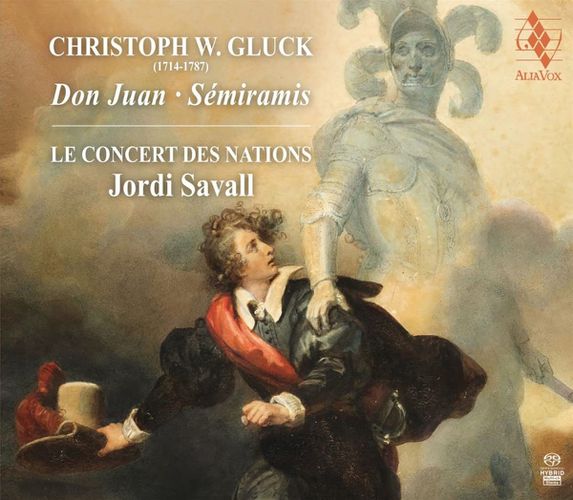Gluck: Don Juan and Semiramis
Le Concert des Nations, Jordi Savall

Gluck: Don Juan and Semiramis
Le Concert des Nations, Jordi Savall
A year before his pinnacle opus, Orpheus and Eurydice, Gluck was already largely renewing another musical genre, the ballet, by adapting in 1761 a play by Molière for the Viennese public: Don Juan. Another ballet, Sémiramis, will follow the following year, these two works innovate in that they offer a coherent narration where all the resources of the orchestra are put at the service of expressiveness.
Jordi Savall and the Concert des Nations restore all the colours and remind us that a quarter of a century before that of Mozart, another outstanding personality haunted the stages of Europe with all the evocative power of which music is capable.
Review
Kate Rockstrom
Long-time readers of this column will know exactly who Jordi Savall is. The Spanish conductor, composer and viol player has been revolutionising early music performance since the 1970s. What is hard to convey in this written form is the joy and exhilaration contained in his albums. Savall’s care and attention to the historical details never seem to constrain his performances; instead, they give wings to the music. Being able to hear exactly what the original composers wrote, just the way they would have heard it, is a blessing that continues to give modern listeners delight into the 21st century.
For this album of works by Christoph Willibald Gluck, Savall directs Le Concert des Nations with Manfredo Kraemer as violinist. Born in 1714, Gluck became an influential composer at the Habsburg court in Vienna, where he reformed the art of opera and ballet. This started in 1761 with his ballet, Don Juan, which was based on a work by Molière, with choreography by Gasparo Angiolini. Twelve months later, this was followed by Semiramis, another ballet pantomime. As the label explains, ‘these two works are innovative in that they offer, for the first time, a coherent narrative in which all the resources of the orchestra are put at the service of expressiveness.’ And for those fans of Gluck who know his repertoire, these two works were but a proving ground for his most famous opera, Orfeo ed Euridice, which premiered in 1762.
Don Juan and Semiramis really were the beginnings of how we view opera and ballet today. Just look at Gluck’s musical heir Antonio Salieri, who went on to teach Beethoven, Liszt and Schubert, and Mozart and Berlioz, who were both highly influenced by Gluck’s operas. Listen to this album and hear the roots of classical western art music, drama and style. Luxuriate in the beauty.
Kate Rockstrom is a friend of Readings.
This item is in-stock at 2 shops and will ship in 3-4 days
Our stock data is updated periodically, and availability may change throughout the day for in-demand items. Please call the relevant shop for the most current stock information. Prices are subject to change without notice.
Sign in or become a Readings Member to add this title to a wishlist.


